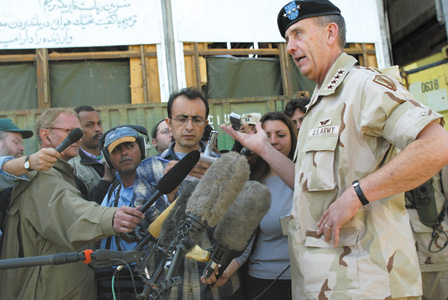Foreign correspondent reports the news from important places in other countries. Such reporters may work for a newspaper, magazine, news service, or radio or television network in their own country.
Increasing interest in international affairs has assured foreign correspondents a permanent place in journalism. Their stories provide the most reliable public report of affairs in other nations. The Associated Press and other news services, as well as major newspapers such as The New York Times, employ many of the foreign correspondents who report to United States readers. Others are heard through major radio and television networks.

The foreign correspondents who have become best known are those who served during wars. Richard Harding Davis covered the Spanish-American War (1898), the Anglo-Boer War of 1899-1902, the Russo-Japanese War (1904-1905), and the early part of World War I (1914-1918) (see Davis, Richard Harding ). During World War II (1939-1945), Ernie Pyle’s columns from the United Kingdom, Africa, Europe, and the Pacific war theater appeared in many papers. His columns were written in a simple, folksy style and became highly popular (see Pyle, Ernie ).
In early American newspapers, foreign news was copied from papers brought from other countries, mostly the United Kingdom. But there was little opportunity for really effective foreign correspondence until ocean cables became available after 1858. The development of radio broadcasting in the 1920’s increased the demand for fast reporting of events abroad. The launching of communications satellites in the 1960’s led to the instantaneous transmission of television news stories from other countries.
